These Are the High-Profile Spot Bitcoin ETF Applications Currently in Play (PART - 1)
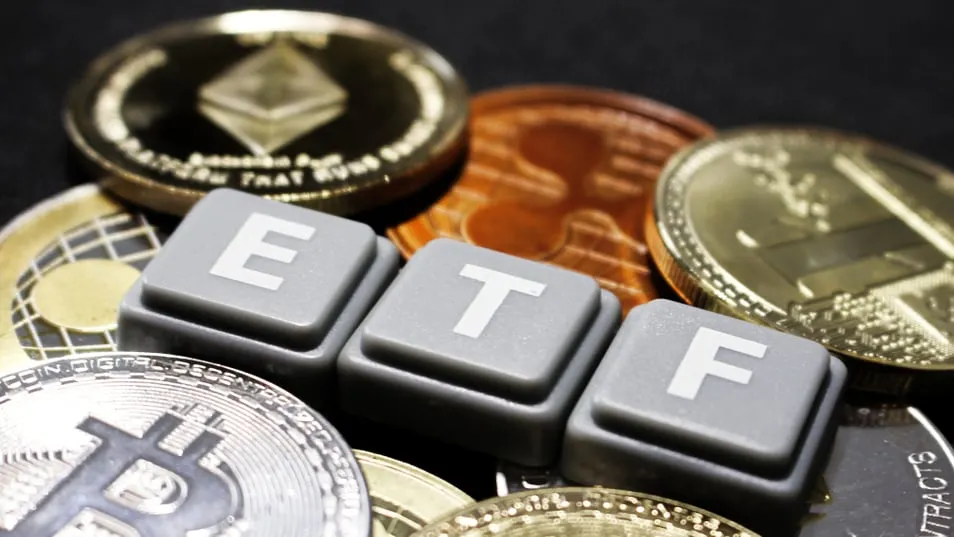
In brief
- A number of hopefuls have filed proposals in the U.S. for an exchange-traded fund that would offer exposure to Bitcoin.
- To date, the U.S. Securities and Exchange Commission has rejected every application for a spot market Bitcoin ETF.
Since the first application for a U.S. Bitcoin exchange-traded fund was filed in 2013, a spot Bitcoin ETF has become something of a holy grail for the crypto community.
An ETF is a publicly traded investment vehicle that tracks the value of an underlying asset; in the case of a Bitcoin ETF, that asset is Bitcoin. Advocates for a Bitcoin ETF argue that the complexities of exchanges, crypto wallets, and private keys still present a daunting barrier to entry into the crypto space for newcomers. A Bitcoin ETF would enable these investors to gain exposure to Bitcoin without actually having to hold their own cryptocurrency.
Bitcoin ETFs have sprung up around the world, in Canada, Germany, Brazil and Dubai—and in October 2021, ProShares' Bitcoin futures ETF launched on the New York Stock Exchange.
However, to date, the U.S. Securities and Exchange Commission (SEC) has rejected every application for a spot Bitcoin ETF—which offers direct exposure to direct exposure that tracks Bitcon’s real-time price, rather than through futures contracts. The SEC has repeatedly cited the potential for market manipulation among cryptocurrency traders among its concerns.
In August, the agency said it needed more time to evaluate several spot Bitcoin ETF applications, including those of BlackRock, Wisdom Tree Funds, Invesco and Galaxy Digital, and Valkyrie Funds. In September, the SEC also made separate announcements for BlackRock, Bitwise, Invesco Galaxy Digital, and Valkyrie applications, as well as for GlobalX and Ark/21Shares ETF, once again delaying the decision.
By November, ETF analysts noted that there was a " brief window" during which the SEC could have approved up to 12 different Bitcoin ETF applications. But it wasn't to be.
In December 2023, SEC chair Gary Gensler confirmed that the regulator is “taking a new look” at applications for a spot Bitcoin ETF, amid a flurry of amendments to prospective applications.
The regulator is next expected to make an announcement about the ETF hopefuls in January 2024. Analysts have even gone so far as to note which days in January they think the industry is most likely to hear from the SEC.
Here are the Bitcoin ETF applications currently in play:
1. BlackRock
On June 15, the world’s largest asset manager, BlackRock—with over $9 trillion in assets under management as of Q1 2023—shocked the TradFi world when it filed an application for a Bitcoin spot ETF. The filing proposed Coinbase as the crypto custodian and spot market data provider, with BNY Mellon as the cash custodian.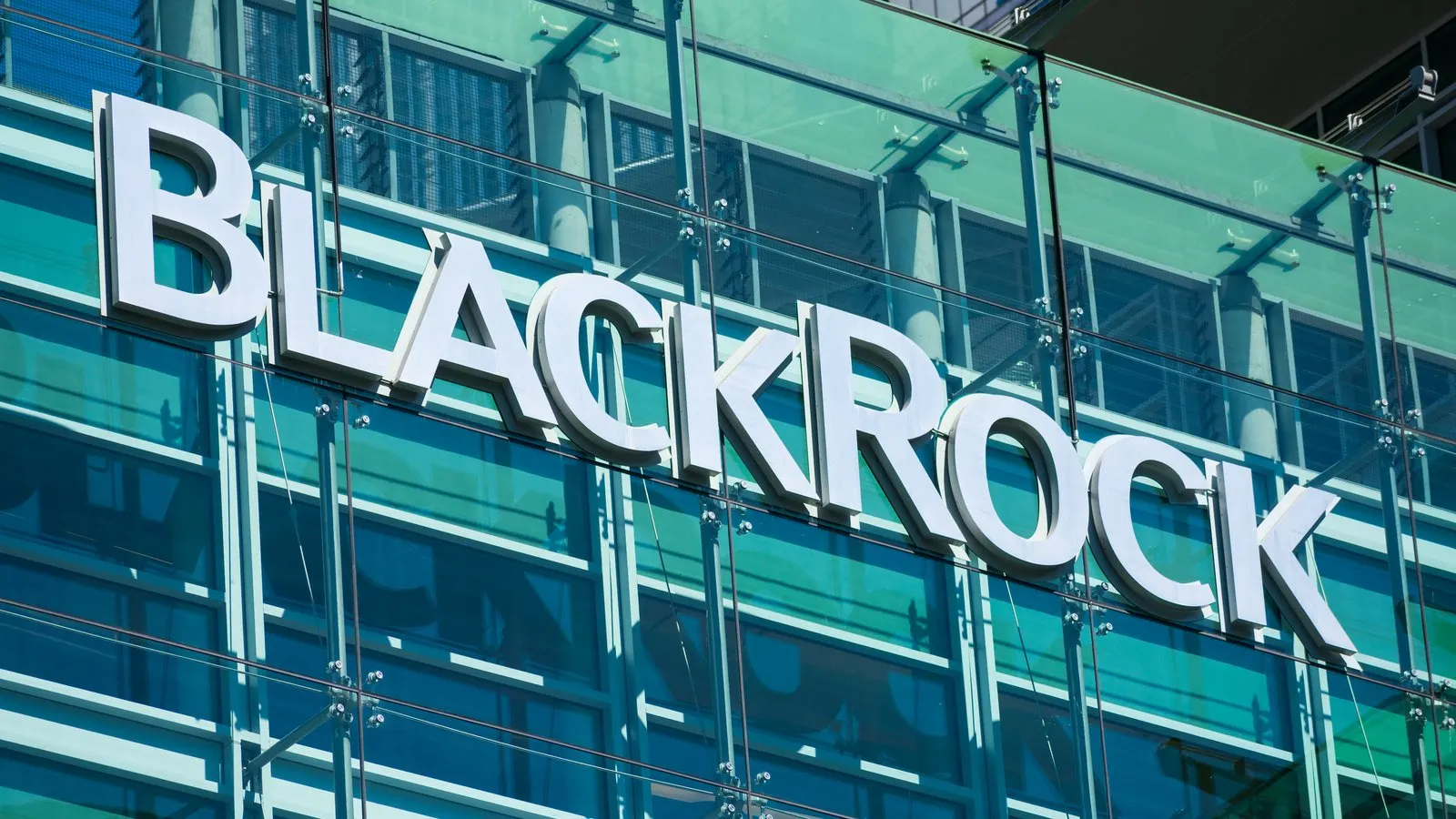
BlackRock Bitcoin ETF Is the ‘Real Deal’—Is This Finally the One?
If you think something is out of the ordinary when one of the world’s most prestigious financial institutions applies for a cryptocurrency investment product during a tough regulatory crackdown, you wouldn’t be the only one. BlackRock, which manages $9.5 trillion in assets, rocked the crypto world yesterday when it applied to the U.S. Securities and Exchange Commission for a Bitcoin exchange-traded fund (ETF). Though the product is technically a trust, as several eagle-eyed observers on Crypto...
According to Bloomberg Senior ETF analyst Eric Balchunas, the investment product, which is technically a trust, is functionally the “ real deal”—a spot market ETF. BlackRock has also already locked horns with the SEC many times to put out ETFs, winning virtually every time with a score of 575-1, according to Balchunas.
BlackRock’s ETF filing was quickly praised by former Barclays CEO Bob Diamond. It also inspired WisdomTree, Invesco, and Valkyrie to make fresh applications to the SEC while helping to pump Bitcoin’s price back above $30,000 in June 2023.
Soon afterward, the SEC flagged concerns about the wave of Bitcoin ETF applications sparked by BlackRock's filing, reportedly claiming that the applications weren't clear enough. BlackRock quickly moved to refile its application in early July 2023, clarifying that it would be finalizing a surveillance agreement with Coinbase to use the crypto exchange as its custodian and for its spot market data for pricing.
By mid-July 2023, the SEC formally accepted BlackRock's application for review, triggering a three-week comment period.
On October 18, BlackRock submitted an amended prospectus for its spot Bitcoin ETF application, with some notable changes in the new filing including acknowledgment of the competition in the race for Bitcoin ETF approval, as well as detailed explanations on the proposed product’s pricing and reporting mechanisms.
In November, an SEC memo confirmed that BlackRock had met with the regulator to discuss its application, with the meeting focusing on whether the investment vehicle would employ an “in-kind redemption model” or “in-cash” one. An “in-kind” model enables investors leaving the fund a redemption in assets other than cash, such as securities, while an “in-cash” model allows them to receive cash.
A subsequent meeting with the SEC saw BlackRock introduce a novel way for shares in the ETF to be redeemed, shifting risk to crypto market makers. The updated settlement flow offers “superior resistance to market manipulation,” the asset manager said, aiming to address one of the SEC’s key issues with a spot Bitcoin ETF.
Following its November meetings with the SEC, BlackRock filed a second amendment to its S-1 registration, which expanded on potential risks including SWIFT outages and disruptions to the Bitcoin network. The updated filing also clarified that should the ETF be dissolved, its BTC would be liquidated and distributed to investors as cash.
In December 2023, a filing revealed that BlackRock had received $100,000 in seed capital from an investor who bought shares in the iShares Bitcoin Trust in October; seed capital investors provide initial funding to an ETF to get it off the ground and trading on a stock exchange.
A December amendment to BlackRock’s S-1 application indicated that the ETF would be cash-only, meaning that new shares of the fund can only be created with cash, rather than Bitcoin. The amendment also changed the fund’s ticker to IBIT. Just a day later, BlackRock and Nasdaq held another meeting with the SEC, relating to the Nasdaq's "proposed rule change to list and trade shares of the iShares Bitcoin Trust under NASDAQ Rule 5711(d)."
In late December, BlackRock named JP Morgan and Jane Street as authorized participants—organizations that work with the fund's issuer to create and redeem shares of a fund so that an investor can cash out.
2. Grayscale
Crypto investment fund manager Grayscale's GBTC Bitcoin trust manages well over 600,000 BTC (worth almost $20 billion at today's prices), and it's made no secret of its desire to convert the trust into a full-fledged Bitcoin spot ETF. In October 2021, it began the process of doing so, formally filing a conversion application.
Were its application to succeed, Grayscale would be able to charge lower management fees, and it would be easier to move money in and out. Grayscale first filed an application to launch a Bitcoin ETF in 2016, but withdrew it a year later, stating that, "we believed the regulatory environment for digital assets had not advanced to the point where such a product could successfully be brought to market."
The lack of a full-fledged Bitcoin ETF has caused problems for Grayscale, and the wider Bitcoin market. In lieu of such a product, GBTC has picked up the majority of the U.S. institutional demand for Bitcoin. However, its shares sometimes trade at a negative premium, lower than the value of the underlying Bitcoin per share—but the fund isn’t allowed to redeem the shares for the Bitcoin itself, so the market can’t organically fix it.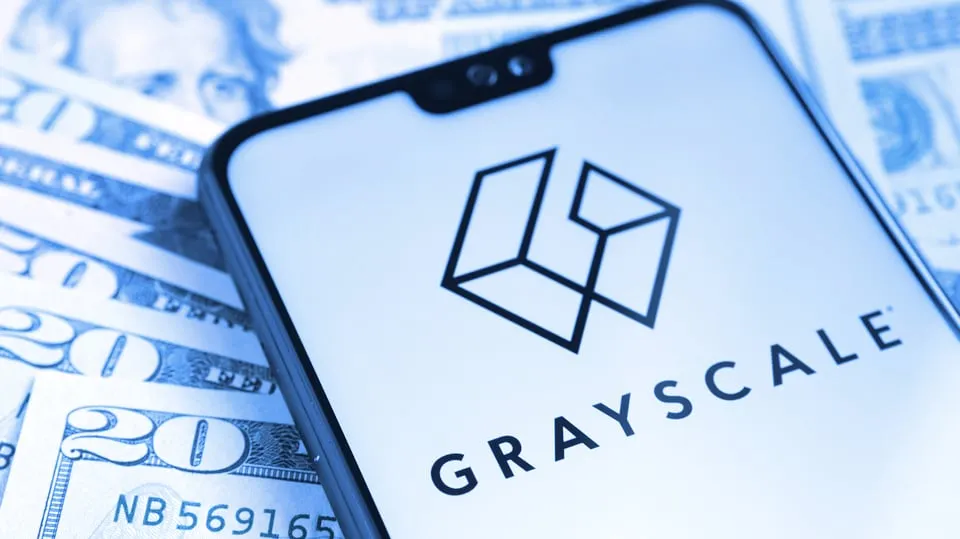
Grayscale Bitcoin Trust Hits 20% Discount as Firm Files for ETF Conversion
There’s more frustration for Grayscale Bitcoin Trust (GBTC) investors as Grayscale’s flagship product is now suffering from a 20.53% discount, according to data from Glassnode. The discount means the market price of GBTC shares is more than 20% lower than its net asset value (NAV). According to Grayscale’s website, each GBTC share currently amounts to 0.00093509 BTC. Therefore, although the Bitcoin per share was worth $57.44 at market close on Monday, GBTC is actually trading at around $45.65. G...
If a Bitcoin ETF were approved, it would allow investors to redeem shares at any time. This would likely prevent a negative premium from appearing and help to keep the shares matching the value of the underlying coins.
It's no surprise, then, that Grayscale has been laying the groundwork for a Bitcoin ETF for some time now, hiring ETF experts and inking a deal with BNY Mellon that would see the global investments company act as the service provider for GBTC. Were it to be converted into an ETF, BNY Mellon would provide transfer agency and ETF services.
In June 2022, the SEC rejected Grayscale’s application saying the company didn’t do enough to prevent possible fraud. Grayscale began litigating with the regulator immediately after, labeling its reason for rejection “ illogical.”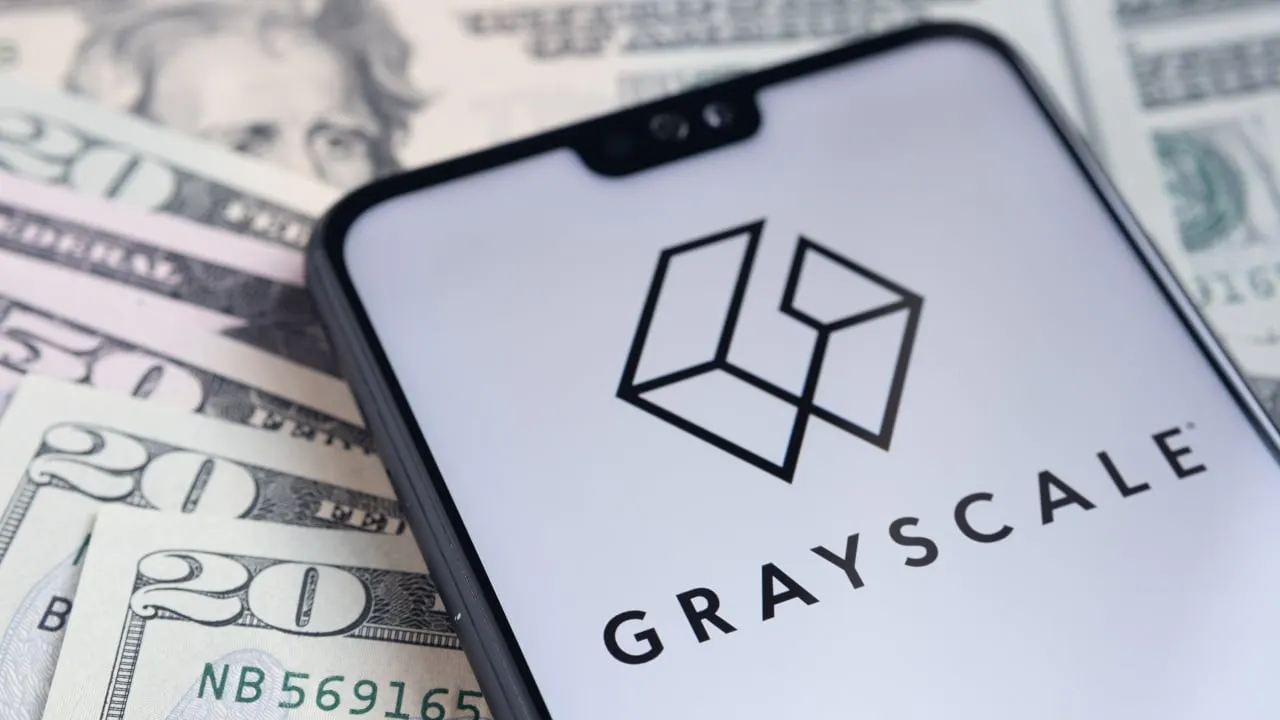
Grayscale Wins Appeal Against SEC to Convert Bitcoin Trust to ETF
A judge has ordered that the Securities and Exchange Commission’s (SEC) denial of Grayscale’s spot Bitcoin ETF application be reviewed, according to an opinion issued by the U.S. Court of Appeals for the D.C. Circuit on Tuesday. The decision represents a landmark moment for crypto. The SEC has denied several applications for spot Bitcoin ETFs, which allow investors to gain exposure to Bitcoin without holding the coin, for a decade while citing market manipulation concerns. The court explained th...
In August 2023, Grayscale scored a victory in court, with a judge in the U.S. Court of Appeals for the D.C. circuit ordering that the SEC's denial of its spot Bitcoin ETF application be reviewed. In a landmark decision, the court explained that the SEC "failed to adequately explain why it approved the listing of two bitcoin futures ETPs but not Grayscale’s proposed bitcoin ETP."
Grayscale called the decision a "monumental step forward" for American investors and the Bitcoin ecosystem—but others have cautioned that the SEC could yet deny Grayscale's application on other grounds.
In late November, an SEC memo revealed that Grayscale principals had met with the SEC to discuss its application. Following the meeting, the firm submitted an updated filing amending its application, which revealed that the product’s ticker would change to BTC.
In December, Grayscale chairman Barry Silbert stepped down from his role at the asset manager, sparking speculation that the move could have been a bid to “improve the odds” of Grayscale’s Bitcoin ETF approval. Subsequently, Grayscale amended its S-3 filing, bowing to the SEC's insistence on a cash-only ETF.
A further amendment to Grayscale's S-3 followed in January 2024, adding in exhibits pertaining to the trust's third-party relationships. Unlike some other applicants, Grayscale has yet to specify its authorized participants.
3. Bitwise
Bitwise first filed for its spot Bitcoin ETF filing back in October 2019, but was, like many other applications, rejected by the SEC. The Commission said the application didn't meet legal requirements to avoid illicit activities including market manipulation.
Importantly, this filing from Bitwise was meant to trade on Bitcoin futures.
In 2021, the firm re-upped its application, opting to trade based on Bitcoin (rather than futures). The firm's chief investment officer Matt Hougan took to Twitter at that time to say that the SEC's concerns had been allayed with that filing.
The Commission didn't quite agree, however, rejecting the filing again in June 2022.
Bitwise filed an amendment to its Bitcoin ETF application at the end of September 2023 to include fresh arguments, which, according to the firm, invalidate regulators' explanations for depriving American investors of the product.
An amendment to Bitwise’s filing in November 2023 tweaked the name of the proposed product, from “Bitwise Bitcoin ETP Trust” to “Bitwise Bitcoin ETF.”
In a sign of the firm’s confidence that approval of its ETF application is looming, Bitwise became the first hopeful to launch an ad campaign relating to a Bitcoin ETF, enlisting actor Jonathan Goldsmith—well-known for portraying “The Most Interesting Man in the World” for beer company Dos Equis—to deliver its “Bitwise is Interesting” message.
4. WisdomTree
New York-based asset manager WisdomTree already has experience running a Bitcoin ETF; it launched one on Switzerland's SIX stock exchange back in 2019. It joined the ranks of U.S. Bitcoin ETF hopefuls in March 2021, filing an S-1 with the SEC that proposed listing shares in the WisdomTree Bitcoin Trust on the Cboe bZx Exchange under the ticker BTCW. Bitcoin ETF
Bitcoin ETF
What Is a Bitcoin ETF, and Why Does Everyone from BlackRock to Grayscale Want One?
Want to earn a free on-chain certificate showcasing your Bitcoin knowledge? Take our free course, Bitcoin Halving 101: What it Means for Miners and Investors. Many of the crypto-curious still view buying Bitcoin from a crypto exchange as an intimidating and opaque process. The technical aspects of holding Bitcoin—such as crypto wallets, Bitcoin addresses and private keys—are confusing to newcomers, and scare some investors away. All of this has intensified the appeal of a Bitcoin ETF, or exchange
Following that, the SEC delayed and delayed and delayed again, with the regulator first inviting feedback from members of the public on the proposal and then announcing that it needed additional time to consider the "issues raised" in comment letters.
The SEC rejected WisdomTree’s application in late 2021—around the same time it rejected similar applications by Valkyrie and Kryptoin. WisdomTree filed a new application in mid-2023, shortly after BlackRock’s filing, which was docketed by the SEC on the same day as BlackRock's application, entering the same three-week comment period.
The SEC delivered another blow to WisdomTree on October 11 as it once again rejected Cboe BZX Exchange’s application for the WisdomTree Bitcoin Trust, once again citing reasons similar to those behind multiple other rejections. The firm revised its application in November, this time adding Coinbase as the custodian for its proposed ETF.
5. Invesco Galaxy Bitcoin ETF
Galaxy Digital and Invesco filed a joint Bitcoin ETF on September 22, 2021, called the Invesco Galaxy Bitcoin ETF. According to that filing, its ETF would also be “physically backed” by Bitcoin rather than via derivatives like futures. Invesco Capital Management LLC is the sponsor of the filing, but at present, it is unknown which firm will custody the Bitcoin for the filing.
Galaxy Digital, Invesco File Joint Physical Bitcoin ETF Proposal
Asset managers Galaxy Digital and Invesco have teamed up to submit a joint application for a Bitcoin exchange-traded fund (ETF) backed by the actual underlying asset. A Bitcoin ETF is a publicly-traded investment vehicle designed to track the value of the leading cryptocurrency, with shares in the fund—if one is ever approved—trading on a traditional stock exchange. In essence, Bitcoin ETFs would give investors exposure to Bitcoin without the hassle of purchasing and storing the actual asset. Ac...
The sponsor is a wholly-owned subsidiary of Invesco Ltd. The firm is also the fourth-largest ETF provider in the United States, a credential that may be helpful in getting the filing across the line. “For someone who’s been in the ETF business a very long time,” said John Hoffman, head of Invesco’s ETF strategies in the United States, “it's incredibly similar to the early days of ETFs—the late 1990s, early 2000s.”
The Bitcoin ETF would be the first of a fleet of crypto-specific ETFs that the duo is hoping to list on American markets.
Invesco and Galaxy made a fresh application to the SEC in mid-2023 after BlackRock filed its own.
In December 2023, Invesco and Galaxy named JP Morgan and Virtu as the ETF's first authorized participants, and announced that the ETF would waive its fees for its first six months of operation and first $5 billion in assets held. Subsequently, its fee would be 0.59%.
6. Valkyrie Investments
A relatively recent entrant to the race, asset manager Valkyrie filed its first application for a Bitcoin ETF in January 2021. The ETF would refer to the Chicago Mercantile Exchange's reference price for Bitcoin and trade on NYSE Arca, "providing investors with an efficient means to implement various investment strategies," the firm wrote in its proposal. Crypto custodian Xapo would secure the fund's Bitcoin, holding it in cold storage. Bitcoin ETF
Bitcoin ETF
What Is a Bitcoin ETF, and Why Does Everyone from BlackRock to Grayscale Want One?
Want to earn a free on-chain certificate showcasing your Bitcoin knowledge? Take our free course, Bitcoin Halving 101: What it Means for Miners and Investors. Many of the crypto-curious still view buying Bitcoin from a crypto exchange as an intimidating and opaque process. The technical aspects of holding Bitcoin—such as crypto wallets, Bitcoin addresses and private keys—are confusing to newcomers, and scare some investors away. All of this has intensified the appeal of a Bitcoin ETF, or exchang..
In that filing, Valkyrie tacitly acknowledged the cryptocurrency's volatility—one of the SEC's key concerns regarding a Bitcoin ETF. “These potential consequences of such a Bitcoin Exchange’s failure could adversely affect the value of the Shares,” it said in a risk assessment.
In a familiar turn of events, the SEC delayed ruling on Valkyrie’s application—alongside applications by Kryptoin, WisdomTree, and Global X—before finally rejecting Valkyrie’s together with Kryptoin’s around Christmas 2021.
By early 2022, Valkyrie had managed to get a Bitcoin Mining ETF approved by the SEC. The instrument is backed by holdings in companies that on average use 77% renewable energy and includes sector heavyweights like Argo Blockchain, Bitfarms, Cleanspark, Hive Blockchain, and Stronghold Digital Mining.
In June 2023, Valkyrie filed another Bitcoin spot ETF application with the SEC. A month later, it updated its filing, listing Coinbase as its surveillance-sharing partner.
In November, crypto asset manager CoinShares secured an option to acquire Valkyrie Funds, set to remain active through the end of March 2024; a brand licensing term means that the CoinShares name would be incorporated into Valkyrie’s ETF, should it be approved by the SEC.
7. Ark Invest
Ark Invest, the investment firm led by Cathie Wood, filed its application for the Ark21Shares ETF in June 2021. ARK Invest has partnered with Swiss-based ETF provider 21Shares AG to offer the ARK 21Shares Bitcoin ETF; if approved it would trade on Cboe's BZX Exchange under the ticker symbol ARKB.
The firm is also the first to reveal the fees for its Bitcoin ETF, with the filing indicating a planned fee of 0.95% payable to 21Shares, which would use the money to cover operating expenses.
Ark Invest already has exposure to Bitcoin at one remove, having invested in crypto exchange Coinbase, the Grayscale Bitcoin Trust and payments processor Square, which holds over 8,000 BTC on its balance sheet. CEO Cathie Wood is, unsurprisingly, an enthusiastic advocate of Bitcoin, arguing that the cryptocurrency represents "a new asset class" and that it could become a reserve currency.
Ark Invest’s ETF was rejected in early 2022. The company reapplied immediately after and was rejected in January 2023. Ark Invest is now on its third application. In June 2023, Ark Invest amended its SEC filing to include a surveillance-sharing arrangement similar to that of BlackRock—albeit not disclosing the crypto trading platform involved.
The SEC twice delayed its decision on Ark Invest's ETF application in August and September, with the firm filing a second amended application for its spot Bitcoin ETF on October 11.
Notably, the latest version introduces additional risk warnings associated with the Bitcoin network, such as risks of a change to Bitcoin’s underlying code, that could negatively affect the price of the proposed product. Speaking to CNBC that month, Wood suggested that “hopes are rising” that one or more ETFs could be approved by the SEC, noting that, “many people think the fact that the SEC chose to ask questions is a change in behavior.”
In November, a revised filing revealed that Ark plans to charge a fee of 0.80% on its ETF, if approved by the SEC. Bloomberg Intelligence analysts have suggested that the firm may opt to sell its holdings of GBTC, worth over $100 million, and port them over to its own ETF upon its launch.
A December amendment to Ark’s form S-1 filing focused on the role of authorized participants, slipped in just before the SEC’s December 29 deadline.
8. VanEck
VanEck is one of the earliest Bitcoin ETF applicants. Its first stab at a Bitcoin ETF—the VanEck SolidX Bitcoin Trust, in partnership with SolidX—came all the way back in 2018.
While that application was withdrawn in September 2019, VanEck made a second attempt at getting a Bitcoin ETF off the ground, filing its application for the VanEck Bitcoin Trust with the SEC in December 2020, with shares of the trust set to trade on the Cboe BZX Exchange.
Notably, VanEck filed its second application mere days after former SEC chair Jay Clayton left his position. In a 2019 interview with CNBC, Clayton had been dismissive of the prospects of a Bitcoin ETF, noting that while there had been "progress" on concerns around custody, that crypto is still vulnerable to price manipulation and that overseas exchanges "do not provide the same level of protection as our U.S. equity market."
However, if VanEck thought that new blood at the SEC would mean a change in its position, they were in for a disappointment. The SEC repeatedly pushed back its decision on VanEck's second Bitcoin ETF filing, before rejecting it in November 2021.
A third application followed in mid-2022 with the SEC once more prevaricating before finally rejecting it in March 2023.
VanEck refiled on June 22, 2023, for approval to launch the VanEck Bitcoin Trust on the Cboe BZX exchange. In mid-July, its application was added to the SEC's official calendar, with the SEC subsequently opting to delay its decision on the ETF until January 15.
On October 27, the asset manager filed an amended application for the product, indicating that it might directly incorporate Bitcoin instead of cash to launch the product. Days later, another amendment revealed that an unnamed seed capital investor had acquired Seed Creation Baskets for the VanEck Bitcoin Trust in October, consisting of 50,000 shares of the ETF purchased using Bitcoin.
Where the majority of other applicants have named Coinbase as the custodian of the Bitcoin underpinning their ETFs, VanEck has instead opted for rival exchange Gemini to custody its Bitcoin.
A December 2023 filing revealed that VanEck has picked the ticker “HODL” for its prospective ETF.
9. Fidelity (Wise Origin Bitcoin Trust)
March 2021 saw a rush of applications for Bitcoin ETFs, among them Fidelity's Wise Origin Bitcoin Trust—perhaps unsurprisingly, given that mere weeks earlier its Director of Global Macro, Jurrien Timmer, said that Bitcoin has a "unique advantage" over gold. The Wise Origin Bitcoin Trust's application would see Fidelity Service Company Inc serving as the administrator, and Fidelity Digital Assets holding custody of the Bitcoin underlying the ETF.
Uniquely, Fidelity has opted to self-custody the Bitcoin underlying the ETF; the vast majority of other applicants have named Coinbase as the custodian, with only VanEck opting for an alternative in Gemini.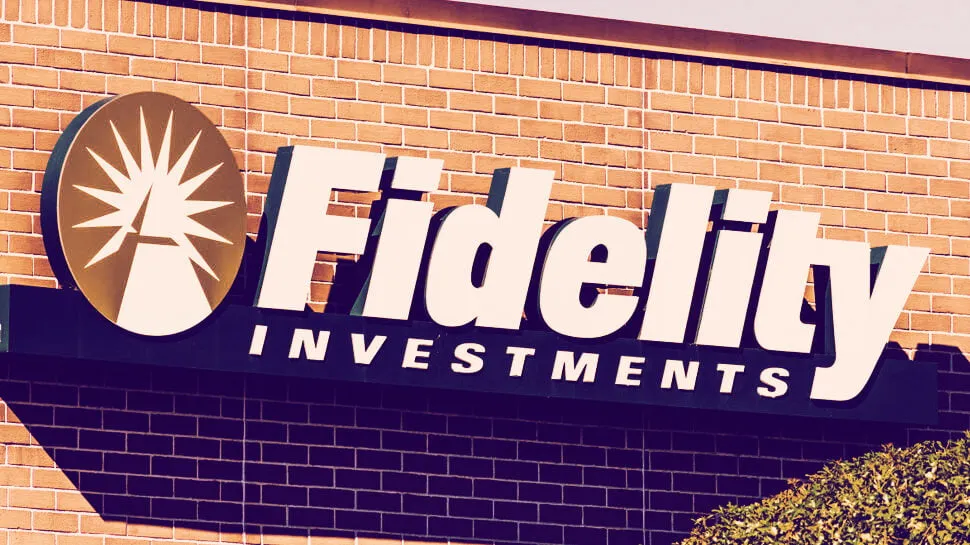 Roberts On Crypto
Roberts On Crypto
A Fidelity Bitcoin ETF Would Be Everyone's Gain—But Grayscale's Pain
This time it's different. For years, Bitcoin companies have been banging on the SEC's door in hopes of launching a Bitcoin ETF—only to have the agency reply with a hard no. But now one of the companies at the door is the mighty Fidelity Investments, and that's likely to be a game changer. In case you missed it, the Boston-based financial giant dropped paperwork this week to create an ETF (exchange-traded fund) called the Wise Origin Bitcoin Trust—a name some say is derived from the Japanese k...
In May 2021, Cboe Global Markets filed a proposal to list Fidelity’s Bitcoin ETF, arguing that the SEC's concerns about market manipulation have been "sufficiently mitigated" thanks to increasing investor participation and institutional adoption of the cryptocurrency, which have "facilitated the maturation of the Bitcoin trading ecosystem." In the same month, the SEC began its review of Fidelity's application.
In January 2022, Fidelity’s ETF was rejected.
Undeterred, Fidelity refiled its application at the end of June 2023; after the SEC raised concerns about the application, Fidelity quickly moved to name Coinbase as the market for its surveillance-sharing arrangement. It was added to the SEC's official calendar on the same day as BlackRock's application, entering a three-week comment period.
The Boston-based investment giant amended its Bitcoin ETF application on October 17, mostly focusing on the risk associated with such a product.
In December 2023, Fidelity updated its S-1 filing to add Jane Street Capital as its first authorized participant, and announced that its fee would be 0.39%.
10. NYDIG/Stone Ridge
The New York Digital Investment Group and advisory firm Stone Ridge were quick to seize on the opportunity presented by the change of leadership at the SEC, becoming the second prospective ETF to file an application with the regulator in 2021. The filing, on February 16, came on an auspicious day for Bitcoin, with the cryptocurrency hitting $50,000 for the first time ever.
In March 2022, the SEC rejected NYDIG’s application together with Global X’s. It subsequently refiled its application in August 2023, with the SEC opting to delay approval in November, ahead of its initial deadline of November 21.
11. Hashdex Bitcoin ETF
The largest crypto asset management firm in Latin America, Hashdex, entered the fray in August 2023, with a proposal to convert its existing Bitcoin futures ETF to a spot ETF.
Hashdex also proposes to employ an unusual strategy that sets it apart from other ETF applications. Where the majority of other applicants plan to use a surveillance-sharing agreement with Coinbase to monitor for potential fraud, Hashdex proposes to obtain spot Bitcoin from within the regulated CME (Chicago Mercantile Exchange) market through its existing Bitcoin futures ETF.
According to its filing with the SEC, Hashdex proposes to “use the Exchange for Physical (EFP) Transactions to acquire and dispose of spot Bitcoin, instead of transactions on unregulated spot exchanges.”
In a blog post published the same day as its SEC filing, the asset management firm argued that the surveillance-sharing agreement proposed by BlackRock and other applicants fails to address the SEC’s concerns around potential market manipulation. The asset manager plans to avoid these risks by holding a mix of Bitcoin futures contracts, spot Bitcoin and cash.
In November, the SEC delayed its ruling on the conversion of Hashdex’s Bitcoin futures ETF to a spot ETF to January 2024.
12. Franklin Bitcoin ETF
Franklin Templeton, one of the world’s largest asset managers with AUM of around $1.4 trillion, joined the race for a spot Bitcoin ETF in September 2023.
Per its filing, the ETF’s shares would be listed on the Cboe BZX Exchange—and, like the majority of applicants, crypto exchange Coinbase would be the fund’s custodian and surveillance-sharing partner.
In November, the SEC delayed its ruling on Franklin Templeton’s application alongside other ETFs, punting its decision to January 2024.
13. Pando Asset Spot Bitcoin Trust
In November 2023, Swiss firm Pando Asset became the latest hopeful to file an application for a spot Bitcoin ETF with the SEC.
The Pando Asset Spot Bitcoin Trust would offer investors Bitcoin-backed shares with Bank of New York Mellon as the administrator and Coinbase as the fund's custodian and surveillance-sharing partner.
Pando already offers Bitcoin and Ethereum exchange-traded products (ETPs) in Switzerland, Germany, the Netherlands, Lichtenstein, and Luxembourg.
14. Global X Bitcoin Trust
Global X Digital Assets, a fund manager with $31 billion in assets under management, filed its application with the SEC in July 2021. The proposed Global X Bitcoin Trust would trade on the Cboe BZX exchange, with the Bank of New York Mellon appointed as the trust's administrator.
GlobalX's portfolio spans 84 ETFs covering disruptive tech, equity income, commodities, and emerging markets. The proposed trust kept the identity of the custodian responsible for safekeeping its Bitcoin under wraps, though it did disclose that the custodian is a limited-purpose trust company authorized to provide digital asset custody services in the State of New York.
In September 2021, the GlobalX Bitcoin Trust was one of four Bitcoin ETF applications (including one Bitcoin futures ETF application) whose deadline was pushed back by the SEC. The regulator announced a revised date of November 21, 2021, on which it would approve or disapprove the application.
Global X’s spot ETF proposal was rejected by the SEC together with NYDIG’s in March 2021.
15. 7RCC Spot Bitcoin and Carbon Credit Futures ETF
A late addition to the race, environmental, social and governance (ESG) investing asset manager 7RCC filed its application for a Bitcoin ETF with the SEC in mid-December 2023. The company reportedly planned to be part of the first wave of applicants some 18 months ago, but it “didn’t work out,” according to CEO Rali Perduhova.
Unlike other applicants, 7RCC’s fund will not be backed entirely by Bitcoin holdings; instead, it will consist of 80% Bitcoin and 20% carbon credits futures, with crypto exchange Gemini acting as custodian for the firm’s Bitcoin.
In a press release, Gemini said that the ETF is “well positioned to differentiate itself” from other applications, and “aims to build a bridge” between the crypto industry and ESG investors.









![[LIVE] Engage2Earn: auspol follower rush](https://cdn.bulbapp.io/frontend/images/c1a761de-5ce9-4e9b-b5b3-dc009e60bfa8/1)










![[ℕ𝕖𝕧𝕖𝕣] 𝕊𝕖𝕝𝕝 𝕐𝕠𝕦𝕣 𝔹𝕚𝕥𝕔𝕠𝕚𝕟 - And Now What.... Pray To The God Of Hopium?](https://cdn.bulbapp.io/frontend/images/79e7827b-c644-4853-b048-a9601a8a8da7/1)












